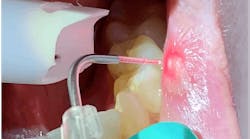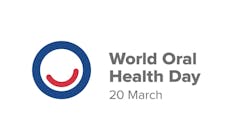By Roger P. Levin, DDS
Positive communication is key in almost every patient interaction. Say the wrong thing to patients, and you may not see them in your practice again. To provide their patients with the best customer service possible, Levin Group clients use PowerScripting™ to enhance the team’s verbal skills.
PowerScripting™ focuses on using positive messages to motivate patients and improve overall practice efficiency and productivity. Unfortunately, negative language sometimes creeps into use and can damage patient loyalty to the practice.
Here are three common words and phrases that undermine quality service and that should be avoided during patient interactions:
1: "No" -- When you say "no," the only thing patients hear is that you are not going to help them. Instead of saying "No, we can’t see you on Tuesday," you can say, "We can see you on Thursday." Notice that instead of telling the patients what is not available, you are sharing with them what is available. It allows you to focus on what is possible versus what isn't.
2: "Can't" -- The first reaction from a patient who hears the word can't is that you’re simply not willing to cooperate. The solution is to tell patients what you can do. For example, avoid saying, "We can't see you in the afternoon." You might say, "We can see you in the morning." You want to be certain that patients understand that you are a patient-focused practice, and that you wish to please and impress them.
3: "We don’t really do that here" -- Often, in a moment of frustration or while trying to explain something difficult, practices will go out of their way to tell patients what the office does not do well. For example, when telling patients that your practice does not perform endodontics, you may say "We don't do this procedure" or something similar. The patient hears, "We don't do this well."
Instead of saying, "We don't do endodontic procedures," you might say, "Endodontics is a specialty procedure and in this situation we believe your case will be best handled by an endodontist. I’m going to refer you to a top endodontist and work with this specialist to make sure you get the best care for this tooth." Similar language can be used for any specialty referral.
Conclusion
To maintain positive relationships with patients, everyone in the practice must use positive language. Negative words such as "no" and "can't" create negative perceptions. Emphasize what is possible. Speak in a way that inspires confidence, and your patients will respond appropriately.
Dental Economics® readers are entitled to receive a 50% courtesy on a Levin Group Total Success Practice Potential Analysis™, an in-office analysis and report of your unique situation conducted by a Levin Practice Development Specialist. To schedule the next available appointment, call (888) 973-0000 and mention Dental Economics® or e-mail [email protected] with Dental Economics® in the subject line. For more information on Levin Group programs and seminars, go to www.levingroupgp.com.





